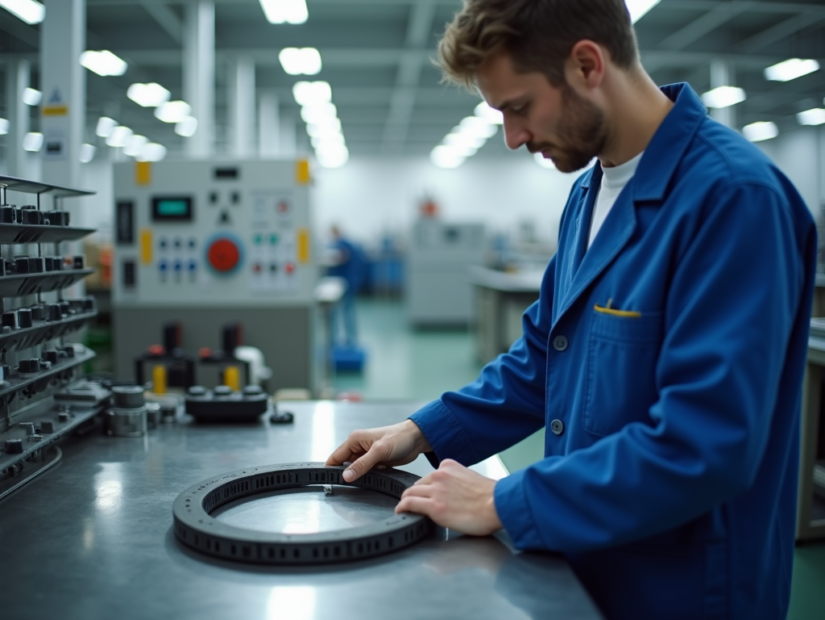When it comes to rubber gaskets, quality isn’t just a preference—it’s a necessity. Whether for industrial machinery, automotive applications, or critical sealing solutions, a poorly made gasket can lead to leaks, breakdowns, and costly failures. But how do you ensure you’re choosing the right manufacturer? It all comes down to understanding the role of quality in the production process and its impact on performance, durability, and safety.
The Role of Rubber Gaskets in Sealing Solutions
Rubber gaskets may seem like simple components, but they serve a vital function—creating a secure seal between two surfaces to prevent leaks of gases, liquids, or contaminants. They’re used in industries like aerospace, automotive, pharmaceuticals, and oil and gas, where even the smallest failure can have serious consequences.
Because gaskets endure pressure, temperature changes, and exposure to harsh chemicals, their quality directly affects the efficiency and safety of the systems they are part of. This is why working with reputable, high-quality rubber gasket suppliers is essential.
Signs of a High-Quality Rubber Gasket Manufacturer
Not all gasket manufacturers operate at the same level of quality. Some cut corners with cheap materials or lack stringent production processes. To ensure you’re choosing a manufacturer that prioritizes quality, look for these key factors:
1. Material Selection and Testing
A reliable manufacturer sources high-grade rubber materials suited for specific applications. Different industries require different types of rubber, such as:
- Nitrile (NBR) – Ideal for oil and fuel resistance.
- EPDM – Great for weather and ozone resistance.
- Silicone – Used for high-temperature applications.
- Viton® (FKM) – Resistant to harsh chemicals and extreme temperatures.
Beyond just selecting the right materials, a quality manufacturer will conduct rigorous testing for durability, flexibility, and resistance to environmental factors.
2. Precision Manufacturing Processes
The best manufacturers use advanced production techniques like compression molding, injection molding, or die-cutting to ensure precise gasket dimensions and uniform quality. Small imperfections can lead to sealing failures, so tight tolerances and quality control measures must be in place at every stage of production.
3. Certifications and Industry Compliance
Reputable manufacturers adhere to strict industry standards and regulations. Look for compliance with certifications such as:
- ISO 9001 – Ensures consistent quality management practices.
- FDA Compliance – Essential for gaskets used in food and pharmaceutical applications.
- ASTM & SAE Standards – Provide guidelines for material properties and performance.
A manufacturer that meets or exceeds these standards demonstrates a commitment to quality and reliability.
4. Customization Capabilities
Not all gasket applications are the same. A good manufacturer will offer custom gasket solutions tailored to your specific needs, including unique shapes, sizes, and material blends. This level of expertise ensures that your gasket performs optimally for its intended use rather than relying on generic, one-size-fits-all options.
5. Strict Quality Control Measures
Quality control is the backbone of reliable gasket manufacturing. A top-tier manufacturer will have stringent inspection protocols in place, including:
- Dimensional accuracy checks – Ensuring every gasket meets the required specifications.
- Material testing – Verifying rubber properties for strength, elasticity, and resistance.
- Batch tracking – Allowing traceability of each gasket back to its production lot.
These measures help catch defects before products reach customers, preventing failures in the field.
Why Poor-Quality Gaskets Can Be Costly
Choosing a subpar gasket manufacturer might save money upfront, but the long-term consequences can be significant. Here’s what can happen when gasket quality is compromised:
1. Equipment Failures
A low-quality gasket may not provide an adequate seal, leading to leaks, pressure loss, and system inefficiencies. This can cause machinery breakdowns, leading to unplanned downtime and expensive repairs.
2. Increased Replacement Costs
Cheap gaskets wear out faster, meaning more frequent replacements. Over time, this adds up in material costs and labor expenses for repeated installations.
3. Safety Risks
In industries like aerospace, oil and gas, or chemical processing, gasket failures can result in hazardous leaks, fire risks, or contamination. Ensuring gasket reliability is critical to maintaining a safe working environment.
4. Compliance Issues
If a gasket doesn’t meet regulatory standards, it can lead to non-compliance penalties or even legal consequences. This is especially crucial in industries with strict quality and safety regulations.
Questions to Ask a Rubber Gasket Manufacturer
Before committing to a supplier, ask these key questions to assess their quality standards:
- What materials do you use, and how do you ensure their quality?
- Do you have industry certifications such as ISO 9001 or FDA compliance?
- What testing procedures do you follow for durability and performance?
- Can you provide custom gasket solutions tailored to my application?
- What quality control measures are in place during manufacturing?
A trustworthy manufacturer will have clear, detailed answers and be transparent about their processes.
Final Thoughts: Quality Over Everything
When selecting a rubber gasket manufacturer, quality should always be the top priority. A well-made gasket ensures reliable performance, reduces costs in the long run, and provides peace of mind that your systems will operate smoothly.


